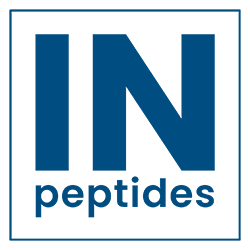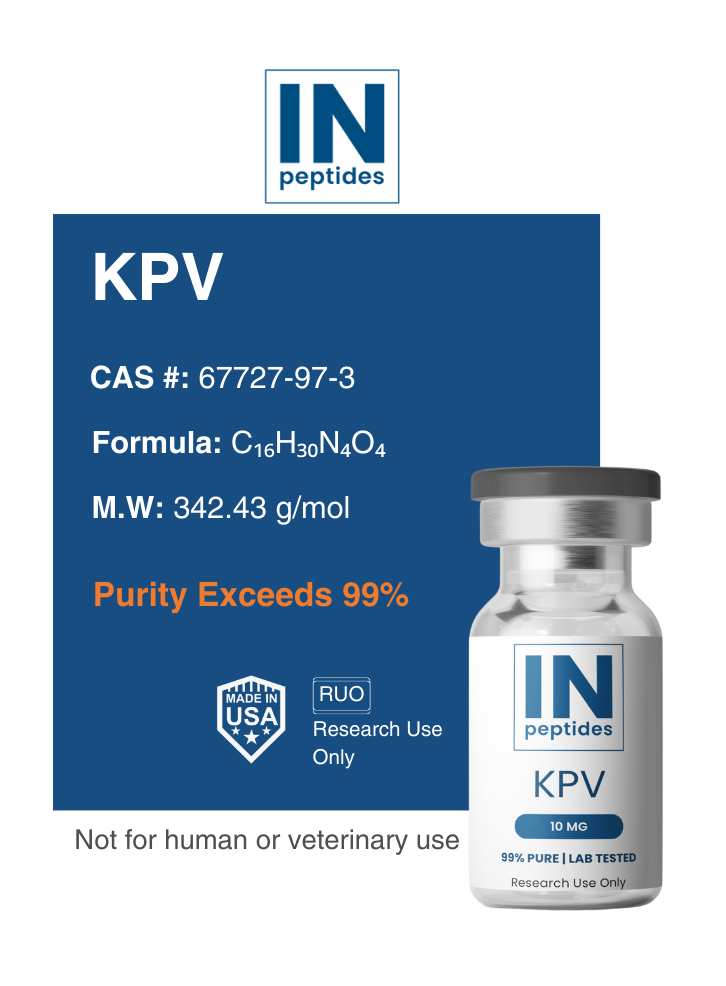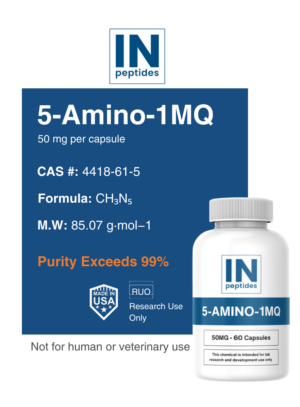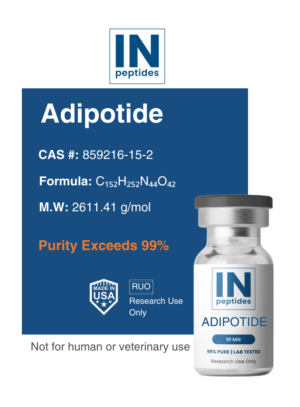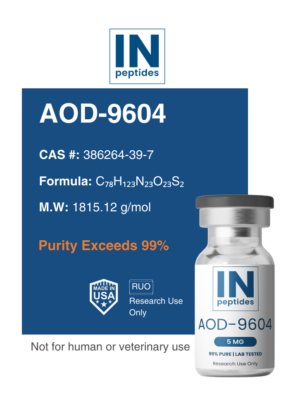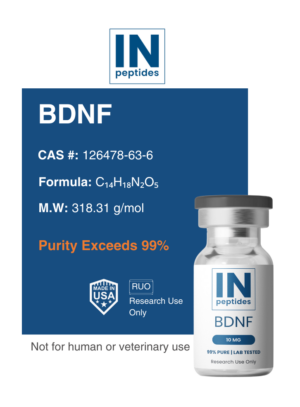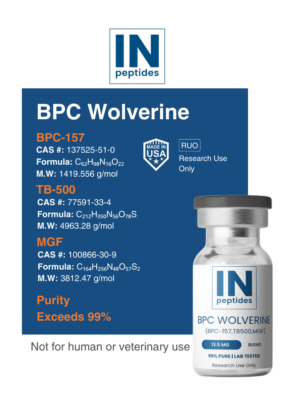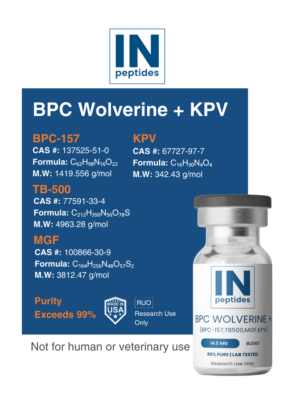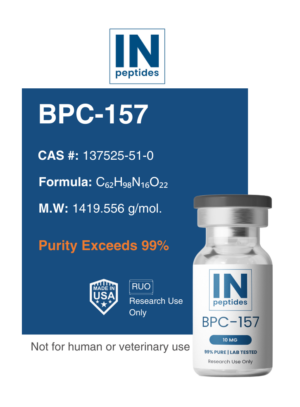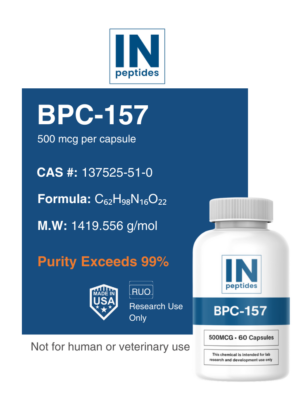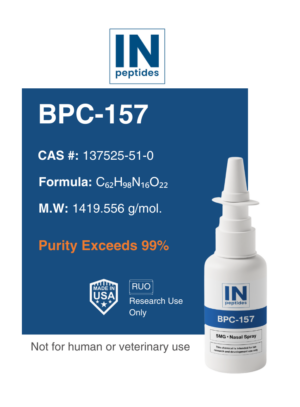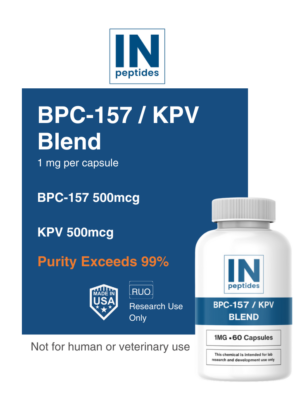KPV – 10mg
$100.00
KPV (Lysine-Proline-Valine)
KPV is a synthetic peptide made up of three amino acids: lysine, proline, and valine. It is primarily studied for its potential anti-inflammatory properties and its ability to support skin health, particularly in managing conditions that involve inflammation or irritation. KPV has been explored for its potential applications in reducing inflammation, improving skin conditions, and supporting overall immune function.
Potential Research Applications
KPV is currently being explored in research settings for its role in:
- Anti-Inflammatory Effects: Investigated for its potential to reduce inflammation in various tissues, making it a subject of interest in research on inflammatory disorders.
- Skin Health & Dermatitis: Studied for its ability to improve skin health, especially in conditions like eczema, psoriasis, and other inflammatory skin disorders.
- Immune System Modulation: Researched for its potential to support immune system function, particularly in managing inflammatory responses at the cellular level.
- Wound Healing: Explored for its potential to promote tissue repair and healing, particularly in inflammatory wounds or skin irritations.
✔ High-Quality Research Peptide – Produced under stringent quality control standards.
✔ Lab-Tested for Purity – Ensures consistency for scientific studies.
✔ Research Use Only – Not for human consumption or medical applications.
✔ Peptides – Will arrive in a lyophilized (powder) form for maximum stability.
The peptides are available for research and laboratory purposes only. Please review and ahere to our Terms and Conditions before ordering.
- Description
- Certificate of Analysis
KPV is a synthetic peptide made up of three amino acids: lysine (K), proline (P), and valine (V). It comes from a larger protein called α-melanocyte-stimulating hormone (α-MSH). This protein regulates functions like inflammation, pigmentation, and immune response. As a fragment of α-MSH, KPV has attracted attention for its potential to affect inflammation and immune modulation.
Researchers focus on KPV’s anti-inflammatory properties. Studies show that KPV interacts with melanocortin receptors, especially the melanocortin-1 receptor (MC1R). This receptor helps modulate inflammation. By binding to MC1R, KPV reduces inflammation in tissues. This makes KPV a promising candidate for treating chronic inflammation.
KPV may also promote wound healing and tissue repair. Research suggests that it helps heal damaged tissues by modulating immune responses and reducing oxidative stress. This has sparked interest in KPV’s potential for improving skin health. It could aid in healing wounds, burns, and other skin damage.
Additionally, KPV regulates the immune system. It affects immune cell activity and the balance between pro-inflammatory and anti-inflammatory responses. This regulation helps maintain immune homeostasis. Researchers study KPV for its potential in treating autoimmune diseases, allergies, and other immune disorders.
KPV may also protect the brain and nervous system. Studies show that it can protect against inflammation-induced damage. Researchers are investigating KPV’s role in neurodegenerative diseases, where inflammation contributes to disease progression.
Since KPV is derived from α-MSH, it may influence skin pigmentation. α-MSH helps regulate melanin production, which affects skin pigmentation. However, this area remains under investigation.
In summary, KPV is a synthetic peptide with potential in treating inflammation, immune modulation, wound healing, and neuroprotection. Its possible applications make it an important subject of study in various fields.
For Research Use Only
No Certificate of Analysis images available for this product.
